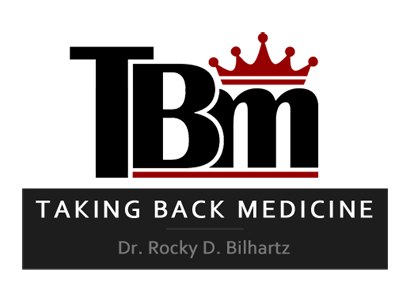I’m obsessed about finding ways to better deliver high-quality and affordable medical care.
And, yes, it obviously starts by eliminating the medical waste that’s preventing it. What’s on the chopping block for today?
Mandated medical documentation.
Follow me around for a single morning. It’s the most obvious waste you will recognize.
Ninety-five percent of it might as well be monkeys typing on a typewriter. No one providing care wants to read any of it. Because it’s not helpful.
There are lots of letters on the page. And, there are lots of pages.
Frequently, it’s an unsolvable puzzle. In fact, I challenge you to find much of anything that really matters inside a patient’s chart anymore.
I guarantee you the insurance companies don’t read any of it. I send them records all the time trying to get studies approved for my patients. They read absolutely none of it.
They just deny the test. Then, I have to call them. Wait on hold. Talk to a nursing supervisor. I just hung up the phone with one a few minutes ago. Do you know what she asked me?
“Doctor, can you tell me the reason you are ordering this test?”
Tell you?
I sent you two-dozen pages of notes. You are looking at them now. Why don’t you read what I send you?
I’ve got my theory on this one.
WE HAVE ALL JUST GIVEN UP.
The doctors. The nurses. The insurance companies. Everyone. Because there’s almost nothing useful in notes anymore. It’s just mandated medical nonsense. And, like a tragedy playing out on the stage, this is precisely the system that our government keeps doubling-down on for the future of medicine.
Act I: The data dump of bloated notes back and forth.
Act II: Back and forth. Back and forth.
It’s wasteful.
There are multiple pages on the CMS.gov website that outline “Rules of Documentation” for physicians. My favorite is a 49-page document that tells me precisely what I must put in my clinic note to bill for a detailed visit, or a comprehensive visit, or so forth.
Twelve elements from a such and such organ system must be documented. It doesn’t matter if they don’t apply.
All the time, I document asking questions that obviously have no bearing on the end result. Just stuff it in the note, they say.
A “social fact” is a cultural box within which we view problems and potential solutions. It’s how we see the world—often the only way we imagine it to exist.
We see a medical error occur because of poor communication. So, we assume it’s fixable by mandating more documentation. That has become our “social fact.” And, it’s just erroneous for what I do.
Medicine is always evolving. But not this “Mother-may-I” medical documentation concept. It’s just another outdated “social fact” steering our policies.
For one, the notion worships increasingly archaic and often non-contributory physical exam and review of system elements.
And, two, it hasn’t been updated since 1997.
Yet, it continues to drive the madness that has now perpetuated itself into every government subsidized electronic health record system, every note reviewed for “quality,” and every document circulated by physicians for patient care.
How absurd has the government’s involvement in medical documentation become?
I will share with you a letter I received in the mail this past week. It was addressed “Dear Medicare Provider.”
That’s me. I’m the Provider.
And, here’s what the letter said, verbatim…
Our request for medical documentation, detailed in the Additional Documentation Request (ADR) sent previously, constituted reopening under Section 1869(b)(1)(G) of the Social Security Act (the Act) and 42 Code of Federal Regulations (CFR) 405.980(a)(1). Our good cause to reopen the claim, if required by 42 CFR 405.980(b)(2), was also described in the letter. According to 42 CFR 424.5(a)(6) and Section 1833(e) of the Act, Medicare payment shall not be made to any provider unless sufficient information has been furnished to determine whether payment is due… In addition, Medicare Program Integrity Manual, Chapter 3, Section 3.2.3.8 states that…
What the heck is all of that?
Seriously, are you freakin’ kidding me?
If the Center for Medicare and Medicaid Services (CMS) really wants to drive high-quality healthcare, the very first thing they should do—rather than build think tanks pontificating untested MACRA legislation—is to just update and simplify their physician documentation guidelines.
The status quo is being tested by all of us every day. And, it’s literally harming our ability to communicate.
CMS could simplify the entire 49-page document into one page, based entirely on medical decision making surrounding each physician encounter. They could do it.
It would actually be a step toward Making Medicine Great Again.




